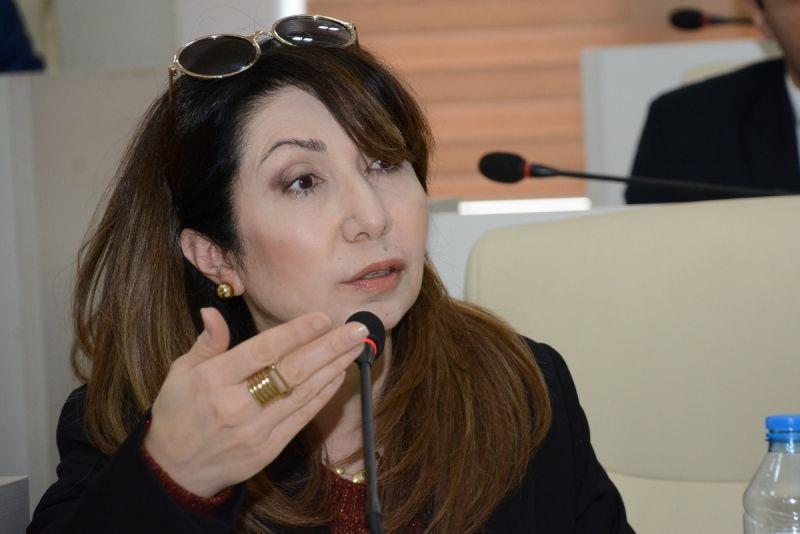
Women In Azerbaijan Earn 35% Less Than Men, Reveals New World Bank Report
In Azerbaijan, women remain significantly underrepresented in key sectors of the economy, with only 17 per cent of the workforce employed in transport and storage, 11 per cent in energy, and 8 per cent in construction.
Azernews reports that this was stated by Saida Bagirli, Chief Operations Specialist at the World Bank's Azerbaijan Office, at the "Leadership Achievements in Promoting Work and Career Development of Women in Azerbaijan" event.
Saida Bagirli highlighted the persistent gender disparities in these critical sectors. She pointed out that women hold a disproportionately small share of managerial and technical roles in these fields, contributing to a notable gender pay gap. On average, women in Azerbaijan earn approximately 35 per cent less than their male counterparts.
Bagirli also noted that Azerbaijan has made significant strides in addressing these barriers. "In late 2022, with support from the World Bank's analytical work, Azerbaijan took an important step by lifting gender-based legal restrictions on women's employment," she said. "In 2023, for the first time, women were granted the right to work night shifts, further dismantling long-standing gender-based limitations in the workplace."
Despite these advances, challenges remain, particularly in industries such as transport, energy, and construction, where gender inequality continues to persist. However, Azerbaijan has made notable progress in reducing gender disparities in these traditionally male-dominated sectors, with the World Bank playing a pivotal role in supporting these efforts through its Gender Advisory Services program. This initiative is implemented under the EU-funded Azerbaijan Rapid Technical Assistance Facility (AZTAF).
The AZTAF program has been instrumental in assisting the Azerbaijani government in addressing gender-based occupational segregation. This has been achieved through labor code reforms and partnerships with public enterprises, such as Azerbaijan Railways and Baku Port, which were selected as pilot organizations to reduce gender gaps in the workforce.
A key development at the event was the presentation of a new report titled "Eliminating Obstacles to Women's Employment in Azerbaijan", prepared by the World Bank within the framework of the AZTAF program. The report draws on in-depth gender assessments of Azerbaijan Railways and the Port of Baku, focusing on the barriers women face in recruitment, inclusion, career advancement, and leadership opportunities.
The report highlights several critical areas for policymakers and employers to focus on in order to increase women's participation in technical fields and promote equal employment opportunities. Key recommendations include fostering inclusive workplaces, addressing gender biases in recruitment and promotion processes, and implementing policies to support women's career development.
These recommendations are not only relevant to Azerbaijan but also offer valuable insights for other countries seeking to improve gender equality in traditionally male-dominated industries. The report presents best practices from Azerbaijan, outlines key progress indicators, and provides actionable recommendations for both public and private sectors.
In conjunction with the report, the event featured the launch of a new online training course, titled "Labor Safety, Health, and Violence: A Gender Perspective", developed under the AZTAF program. Available in both English and Azerbaijani, the course aims to raise awareness of gender-related risks in the workplace and promote new approaches to safety, health, and discrimination. It is designed for a wide range of stakeholders, including business leaders, industry professionals, workers, and government officials.
By providing targeted training and fostering inclusive policies, Azerbaijan is working toward creating a more equitable and supportive environment for women in the workforce. The continued collaboration between the World Bank, the European Union, and the Azerbaijani government signals a strong commitment to breaking down barriers and ensuring that women can fully participate in the nation's economic growth.
Legal Disclaimer:
MENAFN provides the
information “as is” without warranty of any kind. We do not accept
any responsibility or liability for the accuracy, content, images,
videos, licenses, completeness, legality, or reliability of the information
contained in this article. If you have any complaints or copyright
issues related to this article, kindly contact the provider above.

















Comments
No comment